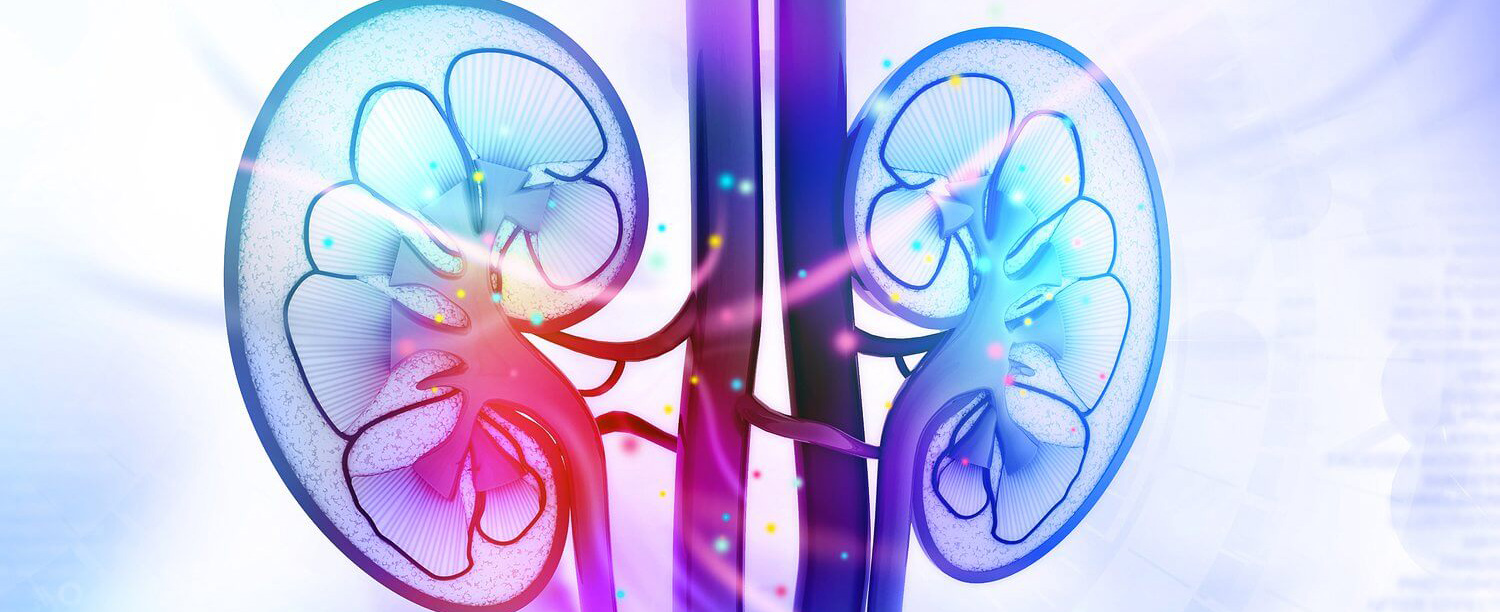Kidney Care Matters: Improving Your Kidney Health at Any Age
By Kristy Warren
When most people think of improving their health or staying fit, they aren’t thinking about their kidneys. Here's why we should: your kidneys play a big role in your overall wellness by filtering blood and waste products, including regulating our blood pressure and helping our body make blood.

Currently, 26 million Americans are affected by chronic kidney disease (CKD), and an additional 73 million Americans are estimated to be at risk of developing it.
Nearly half of those suffering from kidney disease don’t even realize their kidneys are damaged! This because patients in the early phases may not yet show noticeable symptoms, which makes preventive care and wellness screenings that can spot abnormailities quickly very important.
March marks National Kidney Month, and it’s a great time to raise awareness of common kidney problems. Dr. George Dy, Laurel Health's board-certified nephrologist (kidney specialist), breaks down what to watch for and what you can do to improve your kidney health at any age.
WHAT DO KIDNEYS DO?
Kidneys work like a filtration system for our body, removing waste products we don’t need like excess water or medication, and regulating our salt and acid balance. They also make the hormones that regulate our blood pressure and help our body make blood. Since they are responsible for such important functions in our body, healthy kidneys are vital to good overall health.
WHAT IS KIDNEY DISEASE?
When your kidneys are damaged, they don’t filter blood or waste products the way they should. This can create acute problems and chronic kidney disease over time. Because kidney disease can happen slowly, those affected may not show symptoms or even realize their kidneys are damaged in the early phases of disease. Eventually, diseased kidneys can fail and require dialysis or a kidney transplant to live.
WHO’S MOST AT RISK FOR KIDNEY DISEASE?
Diabetes, obesity, and high blood pressure put you at the greatest risk for developing kidney disease, but other factors like autoimmune diseases and genetics also play a role. Because our kidneys are responsible for filtering excess medication out of the bloodstream, long-term use of some over-the-counter medications like Advil, Aleve or Prilosec can also contribute to chronic kidney problems.
HOW TO DETECT KIDNEY PROBLEMS EARLY
A yearly physical with your doctor is the best early detection method. Patients with kidney failure, especially in the earliest stages, will not have noticeable symptoms, so standard preventive screenings like blood tests and urinalysis are your first line of defense. Yearly check-ups with your family doctor help establish a healthy baseline, which will catch changes in your kidney function early.
HOW TO IMPROVE AND MAINTAIN GOOD KIDNEY HEALTH
1. Stay hydrated. Dehydration is harmful to your kidneys. Six to eight 8 oz. glasses of water a day is a good goal for most people, but your weight, exercise habits, and illnesses, all factor in—talk to you doctor for a personalized hydration recommendation.
2. Exercise regularly. Activity decreases your risk of obesity, hypertension, and diabetes—conditions that all place you at greater risk for kidney problems. However, be careful to avoid overexertion and stay hydrated. If you would like to become more active, talk to your doctor to determine a safe exercise routine that’s right for you.
3. Eat a balanced diet. Aim for a lot of fresh produce and whole grains in your diet, including fresh whole fruits and vegetables. Reduce your fat and salt intake. As a general rule, limit your salt intake to 2,300mg per day.
4. Don’t smoke! Smoking is bad for the body, and your kidneys are no exception. Smoking damages blood vessels and decreases blood flow to your kidneys, increasing the risk for cancer and kidney failure.
5. Watch over-the-counter drug use. Kidneys filter medicine, and some medications can be harmful to kidney health if taken too frequently, including medications widely available over-the-counter at your local pharmacy. Watch your use of medications like ibuprofen (Advil) and naproxen sodium (Aleve), as well as any proton pump inhibitor drugs used to address heartburn or acid reflux like Prilosec, Nexium, Prevacid, or Omeprazole.
6. Stay up-to-date on preventive health screenings. Annual physicals, blood tests, and urine analysis (urinalysis) can detect kidney problems early, allowing you and your doctor to act quickly to improve your kidney function before the damage grows worse.
If you suspect you or a loved one may be suffering from a kidney problem or are at risk for developing kidney disease, don't delay! To make an appointment with Dr. Dy, call 570-662-2002 to schedule an evaluation and to discuss your options.
Preventive health screenings and well visits play a major role in keeping you healthy. To schedule your yearly physical or health screening, call 1-833-LAURELHC (1-833-528-7354) and select the Laurel Health Center of your choice or click here for a full list of Laurel Health locations.
For more information on kidney health, stay tuned to our health and wellness blog or visit our Laurel Health Facebook page.
